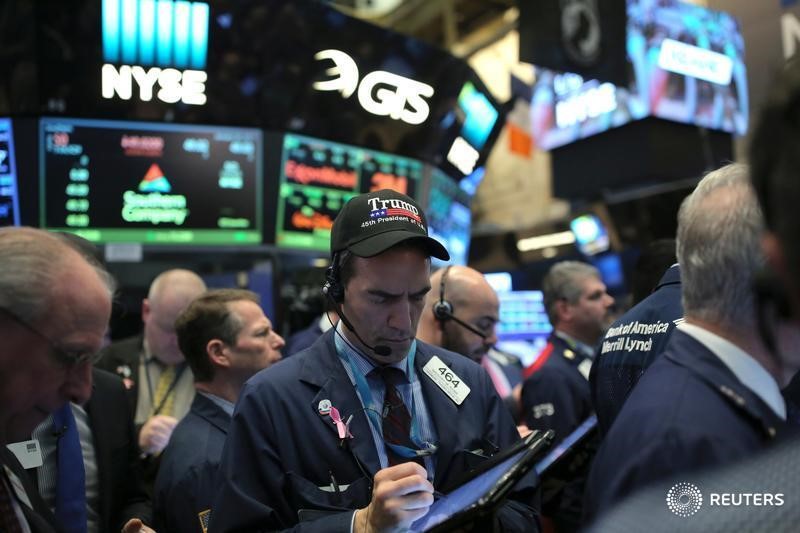By Geoffrey Smith
Investing.com -- Snap (NYSE:SNAP)'s quarterly earnings send a shiver through the social media sector. Intel (NASDAQ:INTC) also disappoints as the disruption of chipmaking stretches out ever longer. The Democrats still can't say how they're going to fund their spending increases. China Evergrande (HK:3333) magics some money out of nowhere to avoid formal default and Jerome Powell will address a market increasingly spooked by inflation worries as Treasury yields hit a five-month high. Here's what you need to know in financial markets on Friday, 22nd October.
1. Snap's unsurprising earnings shock
New privacy settings on Apple’s iOS operating system are every bit the game changer that they promised to be.
Snap stock fell as much as 27% in after-hours trading on Thursday after the parent company of Snapchat said revenue fell well short of expectations in the third quarter, as advertisers refused to spend big money on ads without the comfort of underlying data. The only surprise was that people were surprised: the company had warned of exactly this at its last quarterly update.
Facebook (NASDAQ:FB) stock fell 4.0% and Twitter (NYSE:TWTR) stock fell 4.4% in premarket trading as the market priced in similar developments at other social media companies. Youtube owner Alphabet (NASDAQ:GOOGL) fell 1.9%, while Snap – which expects the impact to be repeated in the current quarter – trimmed its losses to 20%.
2. Biden's tax hike plans derailed
Confusion continued to reign over how the Democratic Party intends to fund its spending promises.
Various reports suggested that the Biden administration has dropped its plans to raise the corporate income tax rate to 28% from 21%, one of its key election promises, after dogged resistance from centrist Democrat Senators.
However, Politico and Bloomberg reported that Kyrsten Sinema, one of the Senators who extracted that concession, is still open to other measures that would fund an overall increase in spending of $2 trillion over 10 years. They didn’t provide details of which measures she was prepared to support, but noted that leves on unrealized stock gains and on corporate stock buybacks were under discussion.
3. Stocks set to open mixed as rising bond yields dampen optimism; Powell speech eyed
U.S. stock markets are set to open mixed later, with evidence of an ongoing recovery in the U.S. offset by concerns about inflation – and about the outlook for some Big Tech names after Snap’s results.
By 6:20 AM ET (1020 GMT), Dow Jones futures were up 34 points, or 0.1%, while S&P 500 futures were up less than 0.1% and Nasdaq 100 futures were down 0.2%. The S&P had closed at a new record high on Thursday.
Pressure from the bond market continued to be felt, with the 10-Year benchmark Treasury yield hitting 1.70% for the first time since May in the overnight session. Federal Reserve Chairman Jerome Powell is due to speak at 11 AM ET and his comments will be scanned for hints as to the future pace of interest rate hikes – as well as his explanation of new rules on trading restrictions for central bank officials.
Stocks likely to be in focus later include Intel, which slumped after disappointing results late on Thursday, and WeWork (NYSE:WE), after a surprisingly strong market debut on Thursday. Digital World Acquisition Corp (NASDAQ:DWAC) will also stay in the spotlight, rising another 59% in premarket.
4. Evergrande's Houdini act
China Evergrande mysteriously – even miraculously – found a few million dollars under the sofa to avoid falling into official default, causing the prices of Chinese real estate equity and debt to jump.
Local media reported that the company would meet the payment on its dollar bond before the end of the day – the deadline that marked the end of the 28-day grace period after it first missed the payment.
However, there was no explanation of how Evergrande had raised the money. It had reported a 97% drop in sales as it prepared to resume trading in Hong Kong earlier in the week, and a mooted deal to raise cash through a big asset sale also fell through. There have been no reports on progress with regard to a comprehensive restructuring of its $300 billion debt pile.
5. Oil moves back above $85
Commodity markets are ending a seesaw week in mixed fashion, with crude oil returning over $85 a barrel as the market reinterpreted President Vladimir Putin’s comments on OPEC+ supplies.
Putin had said on Thursday that the bloc may produce more than its officially agreed schedule but warned at the same time that various members of the bloc are currently unable to raise output to meet their quotas. Russia’s economy is struggling to absorb the inflows from this year’s oil rally: the central bank earlier raised its key rate by 75 basis points to 7.50% to rein in inflation.
By 6:30 AM ET, U.S. crude futures were up 0.4% at $82.81 a barrel, while Brent crude was up 0.5% at $85.06 a barrel, ahead of Baker Hughes’ rig count and the CFTC’s weekly data on positioning later in the day.
